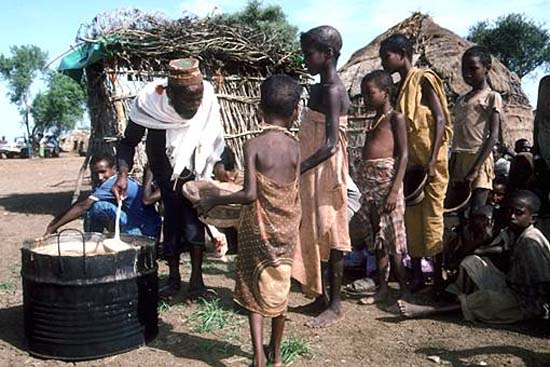
Aman, the Story of a Somali Girl as told to Birginia Lee Barnes and Janice Boddy. Lee Barnes, worked with the Peace Corps in Somalia between 1965 and 1967.
Aman, the Story of a Somali Girl
(As told to Birginia Lee Barnes and Janice Boddy)
Bloomsbury Publishing Fund. RRP $14.95. Australia: Angus and Roberston
Aman could neither read nor write, so her story of growing up in a tribal culture is told to American anthropologist Birginia Lee Barnes, who had worked with the Peace Corps in Somalia between 1965 and 1967 and in 1981 as a volunteer aid worker in a regugee camp. She met Aman in the USA much later, after the Somali woman had married a US serviceman. They became close friends and as the story of Aman's life began to emerge, Lee taped and transcribed it, read it back and corrected to the teller's satisfaction until she overcame Aman's reticence and reluctance to let even the name of her country be known. Work on the manuscript ended when, after completing the draft, Lee died. Her friend, Janice Boddy, eventually read the story and was captivated, seeing it as a snapshot of a society in transition, seen through the eyes of a girl. After researching and filling the gaps, Janice Boddy completed what was truly a collaborative enterprise and gave us a memorable and fascinating story.
Aman describes her tribal life with the wide-eyed clarity and innocence of childhood, and amazing and convincing detail - a legacy of the ancient Somali tradition of oral records. Her account has another fascinating dimension. It is history in close-up, an inside view of intricate tribal relations and sometimes cruel customs, such as genital mutilation, to the dismay of simple tribal people overtaken by a revolution they did not understand.
Aman loved her mother dearly and takes for granted customs that allow a Somali man to have four wives at one time if he can support them all. If he makes love to a woman, he has to marry her - 'this way any child conceived won't be a bastard; the baby will have the father's name and be halal - legal', she says. She explains that divorce is easy for the man, for women difficult, so many run away from old men in arranged marriages, and recalls with sympathy her mother's many marriages and divorces until she met the son of a chief who became Aman's father. But her mother refused to live with him because she wanted to be independent, keep her own livestock and look after her own mother, rather than have to look after his other wives and children.
My mama and grandmama had been travelling for a couple of days, walking miles and miles with their animals, searching for water. Mama was nine months pregnant. When you live out in the bush with animals ... you've got to find water and grass for them. Some people go where water has fallen - you have to follow the rain.
When Aman was about to be born, the other women of the group helped the grandmother with the birth. In her tribal classification, Aman would be able to ask help of any other Somali in the same tribe.
Surrounded from babyhood by religious and tribal customs, enjoying the extended family ties, Aman and her young cousins accept that they must go through the ritual circumcision that older girls show off about. But Aman's mother says she is not to undergo the operation with her two cousins; besides, she does not have enough money for the celebration, to which a lot of people must be invited. However, while Aman's Mama was far away with the cows, the aunts, for the sake of the family name, decided that Aman should be included. Because Aman believes the euphemistic explanations of its necessity, she consents, which makes the shock all the more horrific as she is held down and with a knife and without anaesthetic, her labia and clitoris are removed, the wound stitched together leaving only a small orifice. The pain and fear of being 'cut' for intercourse in marriage (at 13) spur her to run away to the city of Magadishu. She has no idea of what it is going to mean in childbirth.
She speaks with disarming candour of the shame she will merit for losing her virginity, her life seeking love, having a good time with girls more or less on the town, ambitious to better herself, surviving by lies and deceit of older men who fall for her. Eventually she too receives the name given to prostitutes.
Her vicissitudes and eventual hardship as she tries to flee the military who have carried out the coup, harassed by bribery and corruption, restores the sympathy of the reader who may be a trifle wearied by her naive self-justification, on the grounds that she has always sent money to her mama. But whatever her naughty deeds, western women readers will surely remember that she is a victim of the oppression of women in one of its many manifestations. Coming from her own lips, when so few are able or willing to tell such experiences, her story is all the more poignant.
Justina Williams
WEL WA
